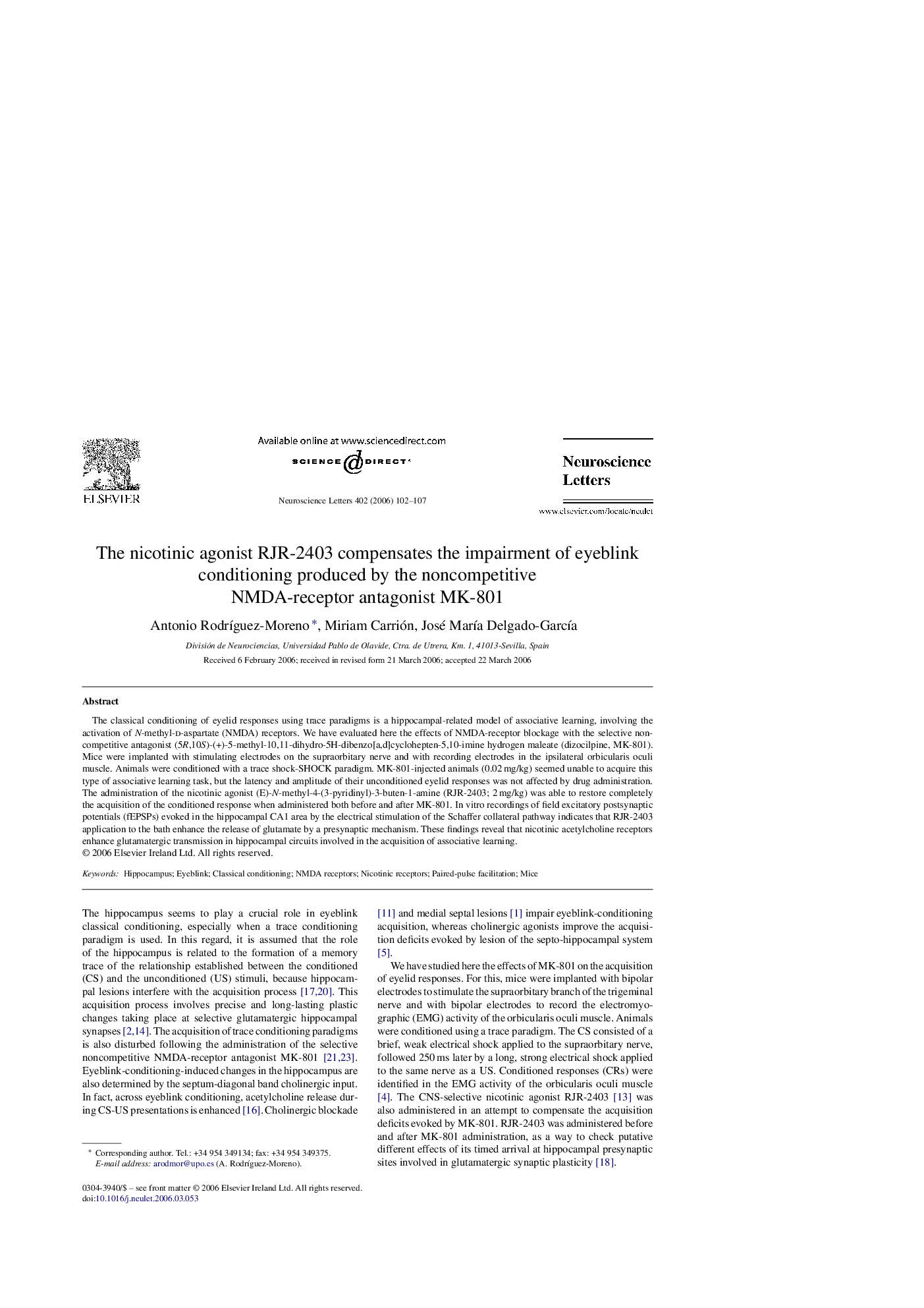| Article ID | Journal | Published Year | Pages | File Type |
|---|---|---|---|---|
| 4350662 | Neuroscience Letters | 2006 | 6 Pages |
The classical conditioning of eyelid responses using trace paradigms is a hippocampal-related model of associative learning, involving the activation of N-methyl-d-aspartate (NMDA) receptors. We have evaluated here the effects of NMDA-receptor blockage with the selective noncompetitive antagonist (5R,10S)-(+)-5-methyl-10,11-dihydro-5H-dibenzo[a,d]cyclohepten-5,10-imine hydrogen maleate (dizocilpine, MK-801). Mice were implanted with stimulating electrodes on the supraorbitary nerve and with recording electrodes in the ipsilateral orbicularis oculi muscle. Animals were conditioned with a trace shock-SHOCK paradigm. MK-801-injected animals (0.02 mg/kg) seemed unable to acquire this type of associative learning task, but the latency and amplitude of their unconditioned eyelid responses was not affected by drug administration. The administration of the nicotinic agonist (E)-N-methyl-4-(3-pyridinyl)-3-buten-1-amine (RJR-2403; 2 mg/kg) was able to restore completely the acquisition of the conditioned response when administered both before and after MK-801. In vitro recordings of field excitatory postsynaptic potentials (fEPSPs) evoked in the hippocampal CA1 area by the electrical stimulation of the Schaffer collateral pathway indicates that RJR-2403 application to the bath enhance the release of glutamate by a presynaptic mechanism. These findings reveal that nicotinic acetylcholine receptors enhance glutamatergic transmission in hippocampal circuits involved in the acquisition of associative learning.
